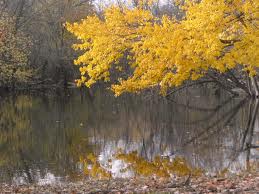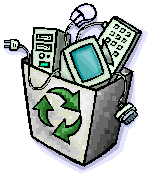by Melanie Weiss
 Sustainability initiatives championed by students and staff at Dominican University in River Forest are making an impact on the campus and reducing the university’s carbon footprint. 4Rfuture is the sustainability plan which is under development that will be the guiding force for operational policies and procedures, campus development, and future commitments to sustainability. Final approval of the 4RFuture plan is expected in the spring of 2012.
Sustainability initiatives championed by students and staff at Dominican University in River Forest are making an impact on the campus and reducing the university’s carbon footprint. 4Rfuture is the sustainability plan which is under development that will be the guiding force for operational policies and procedures, campus development, and future commitments to sustainability. Final approval of the 4RFuture plan is expected in the spring of 2012.
The plan will align with PlanItGreen, which is the sustainability plan of Oak Park and River Forest. Dominican was one of the early adopters of PlanItGreen.
Bike Sharing
For a number of years, the Bike Sharing program has been something the university community has enjoyed as students pedal around campus and the community. According to Elena Maans, Dominican University Sustainability Coordinator, students can check out bicycles on campus much like they check books out of the library. “We also refurbished donated bikes and added them to the fleet,” added Maans.
Water Conservation
In 2002, Dominican became the first university in the Midwest to install parking lot permeable pavers, which has prevented more than 3.6 million gallons of rainwater from entering storm sewers annually. Another water conservation project, the bioswale, contours water around mature trees and filters silt from the runoff water.
The university also uses an existing cistern, a large water tank that was built in the 1920s, to collect rainwater from the buildings. The water is used for the irrigation of campus and in the air conditioning system in Parmer Hall. The cistern also gathers water that is pumped out of the basement of one of the residence halls. Because of the cistern system, Dominican has reduced the amount of potable water purchased by 4-6 million gallons per year.
Healthy Local Food
According to Maans, a community garden has been a “great collaborative effort” that began in May with the planting of vegetables and herbs. The bounty was then harvested throughout the season by staff, students and volunteers, including members of the university’s Eco Club. The Community Garden has donated some of its harvest to the Oak Park Food Pantry. The University also composted almost 50 pounds of coffee grounds from the student café to use on the community garden project.
Reduce, reuse and recycle
The university has campus wide recycling while it also has collections for electronic recycling and battery recycling. Office supplies such as ink cartridges and paper are also recycled. During the construction of Parmer Hall, Pepper Construction diverted up to 75% of construction waste from landfill with their construction waste management plan.
Energy Saving
In addition to projects that reduce waste and conserve water, Dominican also has taken many energy saving initiatives including installation of occupancy sensors, solar powered lights and nergy efficient boilers which save 100,000 therms per year. Energy efficient lighting was also installed on campus, saving 148,000 watts of electricity per year.
Click here for more information on Dominican University'green initiatives.










